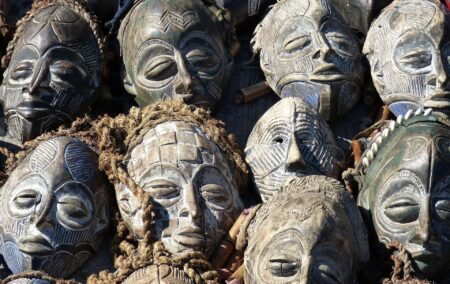Despite the highly negative moral perception of racism in the West, the possibility exists that everybody on earth is in fact naturally racist, and that this unfortunate fact is the basic reason that the problem is never resolved.
In order for anyone to be genuinely free of all racism, they would, on meeting a stranger of a totally different race, have to regard the stranger in exactly the same way that they would regard strangers of their own race, or culture. A little self-introspection will reveal the near-impossibility of this ever happening.
We are all racists, in varying degree, in all probability. While racism, or, more usefully, cultural prejudice, is clearly and widely considered a very negative form of behaviour today in the West, it was not always considered as such historically.
The fact that it is so deeply and widely ingrained in our species also suggests otherwise. If we are ever to really understand racism, and so be in a position to eliminate or correct it, its origin and cause need to be established. While racism itself is unlikely to be inherent in the species, it certainly becomes deeply ingrained in our natures.
If humans are naturally racist, what process makes them so?
Individuals
From the moment of our births, we all undergo a long process of socialisation at the hands of the family and tribe that we are born into. The objective of this process is presumably to establish in our individual consciousness exactly who we are as individuals, relative to the world and the people and culture around us.
As a consequence of this natural social process, we come quickly to feel that the people among whom we are raised possess virtues not necessarily shared by the rest of humanity. This process is an important and vitally necessary one for inculcating social cohesion.
Unfortunately, it is simultaneously a process that unavoidably also tends to promote racism. This happens inevitably, because when we come to believe that the members of our particular community are special in certain important ways, then, by implication, those outside it are prone to be regarded, not just as different, but as ‘other’. Paradoxically, the very social process that binds homogenous communities together, also drives heterogenous communities apart.
A little consideration will help us understand why the social process that gives rise to racism and cultural prejudice originated and has been perpetuated. It will also assist us in understanding why racism actually served a positive social function throughout our past, in contrast to the negative role that it indisputably plays today in modern heterogenous Western society.
What is familiar
As humans, we generally value and prefer what is familiar to us, and normally tend to be strongly averse to things or circumstances that are significantly different to what we are accustomed to. This predisposition of ours is in all probability an ancient protective behavioural mechanism, acquired for good reason over the countless years of hominin development, during which our ancestors lived in small, scattered, and sometimes mutually hostile family and tribal units.
In those hazardous circumstances, and even later, whatever was different and unfamiliar was also potentially lethal, and so was avoided, or at least regarded with strong suspicion or aversion. Over Homo sapiens’ roughly 250,000-year history, racism, as one aspect of cultural prejudice, has probably been viewed as morally good rather than as bad or evil for virtually all of that time.
The survival value that underlies all concern with cultural difference has not lost relevance even today, and this is causing confusion in our understanding of racism.
It is the moral contradiction in the current Western position on racism – the strongly negative moral attitude towards it, while we are aware that everybody, including ourselves, still naturally feels cultural prejudice and racism in varying degree − that is preventing a proper understanding of the phenomenon, and so its possible resolution.
We cannot bring ourselves to acknowledge openly that we are still naturally predisposed to behave in an immoral way that now violates our modern moral code. The whole purpose of morality is to designate which behaviour is beneficial and which harmful to human society, and here we are still feeling racial prejudice when we shouldn’t be, in view of the fact that our modern circumstances have changed radically compared to the past. The moral contradiction has utterly confused us.
Sense of guilt
There is, however, another reason that racism is not yet being properly analysed or understood. The exploitation of the general ignorance of its real nature, together with the moral sense of guilt that this engenders, has come over the past seventy-five years to serve a political purpose benefiting particular groups of people. These are utilising the sectarian ideology of Critical Race Theory (CRT), prominent in Western academic institutions, and particularly, it seems, in the social science departments, to gain political power.
This ideology, recognising the justified guilt that modern Westerners feel about their racial prejudice, and playing upon it, claims to speak on behalf of the downtrodden and exploited in society. Moralising on racial difference and diversity, CRT declares all whites (but not other races) to be morally deficient and inherently guilty of racism, and all people of colour innocent of it.
As harmful to social order as it now is, the problem of racism is unlikely ever to be resolved, or even to start to be resolved, as long as the people most qualified to understand its origin and nature, and so responsible for informing society accordingly, namely our social scientists, prefer ideological moralising to the scientific method.
The views of the writer are not necessarily the views of the Daily Friend or the IRR.
If you like what you have just read, support the Daily Friend

